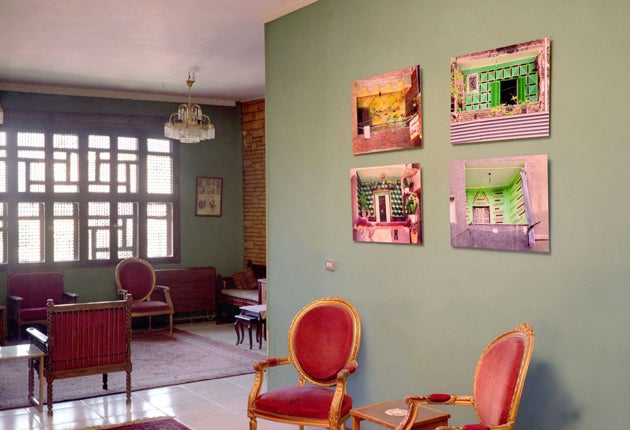Lapdogs of the Bourgeoisie, Arnolfini, Bristol

Your support helps us to tell the story
From reproductive rights to climate change to Big Tech, The Independent is on the ground when the story is developing. Whether it's investigating the financials of Elon Musk's pro-Trump PAC or producing our latest documentary, 'The A Word', which shines a light on the American women fighting for reproductive rights, we know how important it is to parse out the facts from the messaging.
At such a critical moment in US history, we need reporters on the ground. Your donation allows us to keep sending journalists to speak to both sides of the story.
The Independent is trusted by Americans across the entire political spectrum. And unlike many other quality news outlets, we choose not to lock Americans out of our reporting and analysis with paywalls. We believe quality journalism should be available to everyone, paid for by those who can afford it.
Your support makes all the difference.The title of this exhibition sounds winningly, stirringly provocative: a group of young artists from around the world promises to lay bare the way in which the world of contemporary art – who succeeds and who fails, who's in and who's out – is determined – and riven – by issues of class. Friedrich Engels would have been proud to endorse such a show, we might think. The reality could not be more different.
The show consists of a number of discrete pieces – very few – and various multi-part installations – groups of photographs; films; texts on the walls; items of furniture. In a piece by Annika Eriksson called We are not who you think we are, a projector is screening photographic stills which will, we are told by the exhibition guide, help us understand some of the rituals associated with the presentation of contemporary art: the private view (people stand around with glasses in a room); artist meets public (two people leaning into each other); the Kunsthalle (view of entrance to same in Germany); the gallery space (gallery empty; gallery full). Where does this get us? Not far. What does it tell us about class? Nothing. All it tells us is: things happen in a certain way, just as in churches and department stores.
The projector sits on a long table. A group of chairs is drawn up, as if in preparation for a public meeting – or a debate. On the afternoon I visit, there is no one sitting on those chairs; consequently no one is talking. Should I talk to myself?
Two obstacles stand in the way of success. One is the idea of political art. So much political art, like much political poetry, is nothing more than the often over-rapid transcription of the idea of what it is to be. That quick, sloganeering gesture is what counts. There are no moments of serendipity, no sense that the artist is engaged in finding his way through to a conclusion he has not already envisaged. The second is to do with the fact that this show has travelled around the world. Quite a lot of the work is a confusingly-incomplete documentation of what has gone on before. Some of these works, different bits of which turn up in contiguous galleries, don't make enough sense of themselves – or each other. It is like finding parts of a doll and wondering whether they would make up a whole if we searched long enough. Good political art should persuade us to think action ought to be taken – think of the work of Ed and Nancy Kienholz. Much of this stuff leaves us puzzlingly distracted. None of these young people seem to have suffered much. Most of all it feels rather boring and overly-generously funded.
Just one piece stirs us, by Natascha Sadr Haghighian. On one wall there is a bunch of nails, all bent. It looks like a huge, wasp-like swarm. At its centre we can read four words: "I Can't Work Like This". The nails have cleared a perfect space around themselves for the words to exist. The nails surround the words, and the words sing out. It has humour and impact. Whether it has anything to do with class, I couldn't say.
Until 5 July (www.arnolfini.org.uk)
Join our commenting forum
Join thought-provoking conversations, follow other Independent readers and see their replies
0Comments